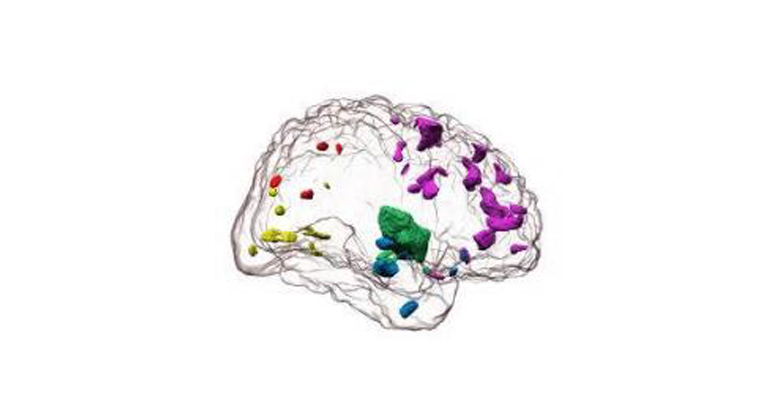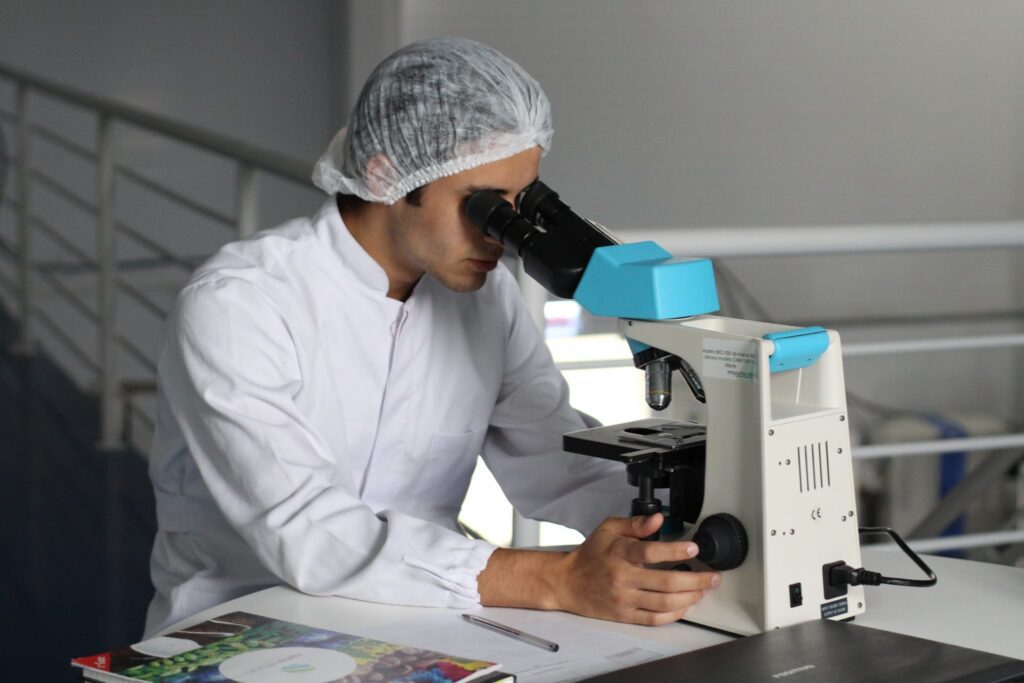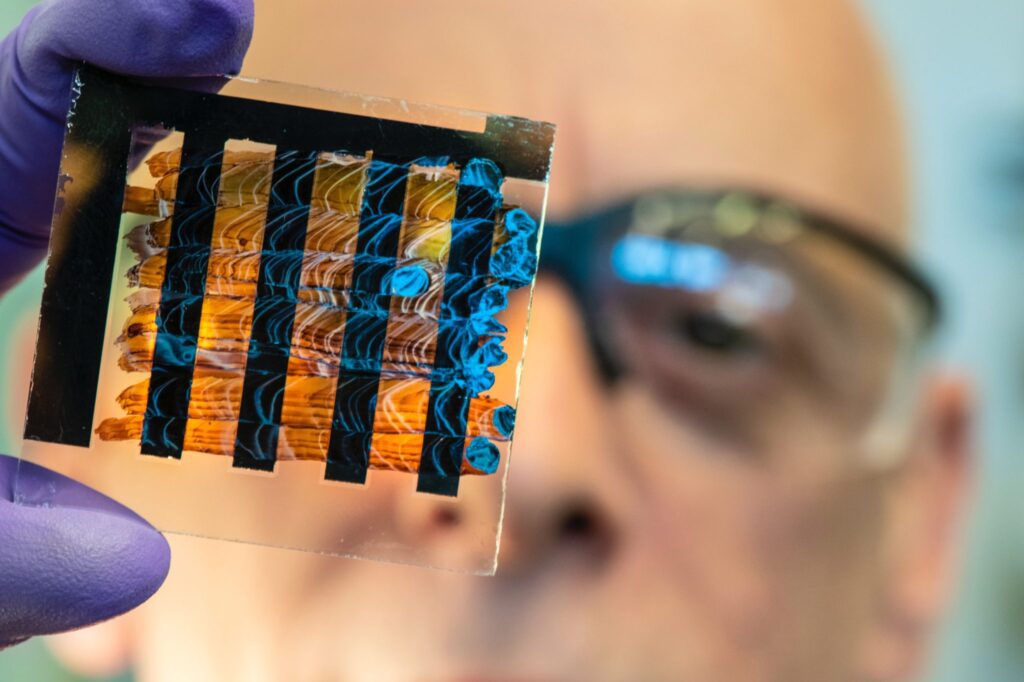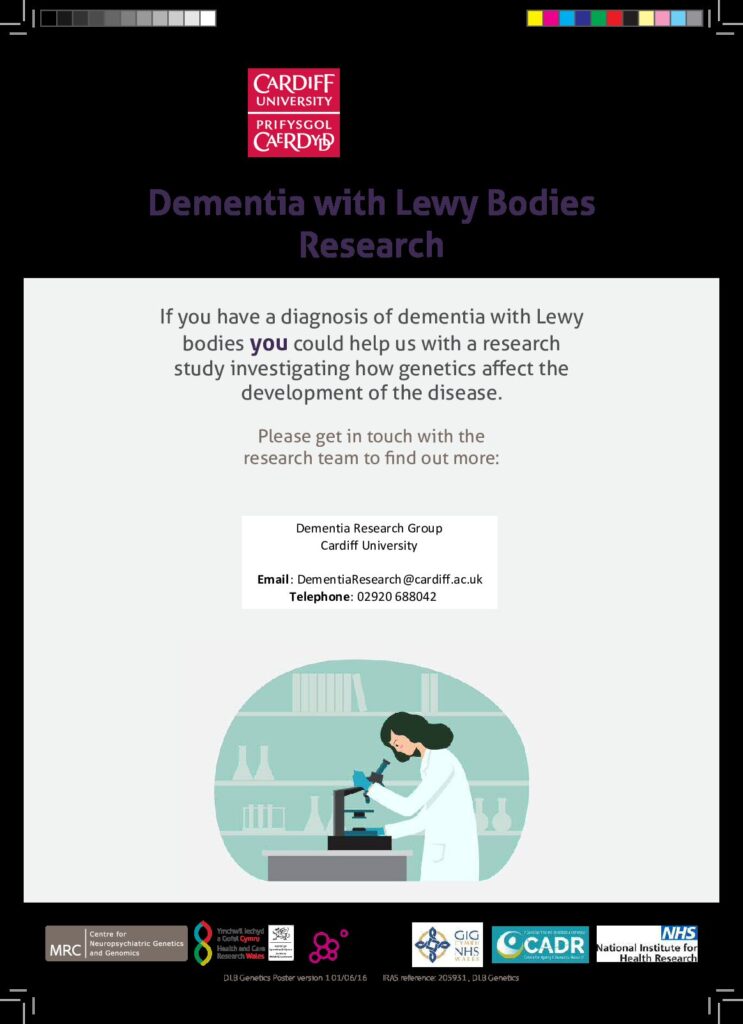
We are posting this information on behalf of Dr. James FitzGerald from the Department of Old Age Psychiatry, University of Cambridge Are you a carer, relative or close friend of a person with a diagnosis of either Lewy body dementia or Alzheimer’s disease dementia? If so, you are invited to participate in a survey study […]

In this article, researcher Alison Killen describes a new support group she has established for people living with Lewy body dementia and their families, and why she wants these groups to be available in all areas. I work as a researcher at Newcastle University and I am also training to be a health psychologist. My […]

Grants awarded by dementia charity to drive forward diagnosis and treatment The Lewy Body Society, a charity dedicated to tackling the second most common form of dementia, has announced the latest recipients of its grants programme. The charity is awarding three grants totalling £366,000 for projects at the University of Cambridge, Newcastle University and Kings […]

2019/20 Grant awarded to Dr Li Su, ARUK Senior Research Fellow, Department of Psychiatry, University of Cambridge. Study also supported by Windsor Research Unit, Cambridgeshire and Peterborough NHS Trust Aim of the study To use new imaging technologies to compare brain structure and function among people with mild-cognitive impairments, to try to identify which patients […]

2019/20 Grant awarded to Dr Oleg Glebov, Lecturer in Old Age Psychiatry, King’s College London Aim of the study To use high-resolution, advanced microscopy methods to study the degeneration of brain synapses. This will further our understanding of the causes of dementia, and help to identify possible ways to treat it. Description of the study […]

2019/20 Grant awarded to Professor John-Paul Taylor, Deputy Dementia Theme lead for the NIHR Newcastle Biomedical Research Centre, Translational and Clinical Research Institute, Newcastle University Aim of the study Using advanced imaging on a PET-MR scanner, this study will examine how the visual part of the brain processes signals, so that we can better understand […]

The Dementia Research Centre at University College London is looking for volunteers with Lewy body dementia to take part in a new research study funded by the British Medical Association Foundation. Background to the study In order to develop new treatments for Lewy body dementia (LBD) or to test existing treatments, researchers need to use […]

Visual hallucinations (VH) are the experience of seeing something that is not actually there. They can occur in those who are healthy but are more common in people with brain deteriorating illnesses affected by Lewy body disorder (LBD); this includes those suffering from Parkinson’s disease, Parkinson’s disease dementia and dementia with Lewy bodies. As these […]

Dementia with Lewy Bodies Research – Can you help? The research is being conducted by a research group based at Cardiff University School of Medicine led by Professor Julie Williams, with centres all over the country taking part. The following information is from the study leaflet which you can download here. Since 2004 we have […]

Access investigational medicines for Lewy body dementia on a clinical trial Re:Cognition Health, a world-leading centre for late phase international clinical trials for Alzheimer’s and dementia research, is currently enrolling volunteers with a Lewy body dementia diagnosis to take part in a trial to help test potential new treatments. Clinical trials are imperative, helping us […]












